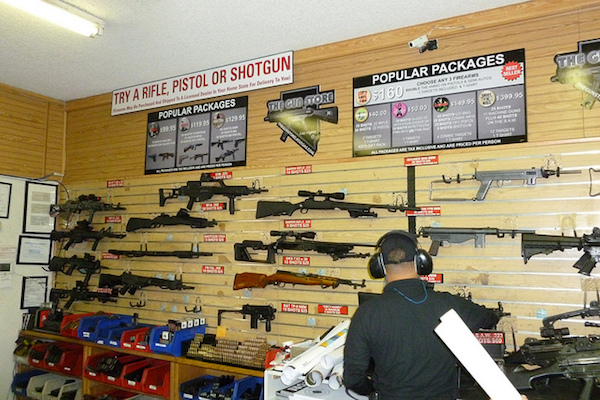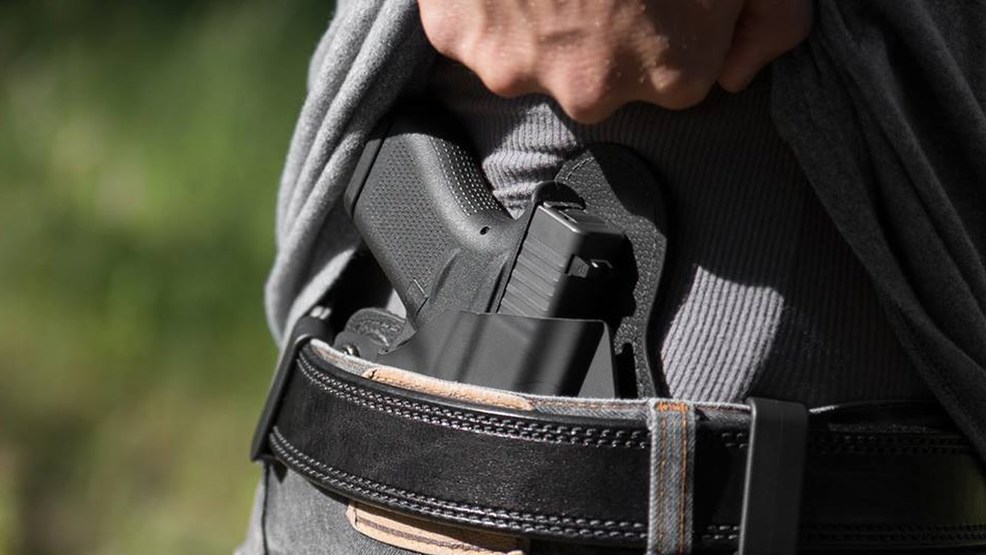All Rebecca Loveless wanted to do was move her tattoo parlor from Boca Raton to Delray Beach, Florida. And that seemingly simple desire to run a good small business and provide a service to those who wanted it set off a frenzy of activity at the Delray Beach Town Hall.
At the time Loveless submitted her application, there were no zoning laws relating to tattoo parlors in particular. But town officials didn’t want “that” type of business in their town, so they scrambled to “investigate zoning issues” related to tattoo parlors. (Sound familiar?)
And by “investigate zoning issues,” what that really means is that they had their government lawyers try to find a way to ban tattoo parlors under the guise of zoning codes and other regulations. Since tattoo artistry is protected under the First Amendment, as the Supreme Court held in 2010, the shops can’t be banned outright.
But, so the story goes, if there were enough new zoning and “public safety” restrictions, perhaps Loveless and others would be sufficiently deterred (or prevented) from opening a shop – a ban without having to say that it’s a ban! So Delray Beach officials got to work drafting an ordinance that would restrict their residents’ rights as much as possible without blatantly establishing a total, outright ban. (Sound familiar?)
Tattoo parlors are just one type of constitutionally-protected service that local governments often target with zoning ordinances to try and limit them to a few undesirable parcels in the bad side of town (or keep them from opening altogether). In the Second Amendment world, the case of Teixeira v. Alameda County is a notable example of this.
In 1998 (a decade before the U.S. Supreme Court issued its landmark Second Amendment decision of D.C. v. Heller), Alameda County passed a zoning ordinance full of impossible standards that proposed gun shops would have to meet before they could open.
For example, the Alameda County ordinance scheme at issue in Teixeira requires (among many other things) that a proposed gun store would need to be in an “appropriate” zoned district and not within 500 feet of any residentially zoned district, elementary, middle or high school, preschool or daycare center, other firearms sales business, liquor store, or establishments in which liquor is served.
As we are all too aware, zoning laws are just one way that [especially local] governments attempt to regulate or eliminate people’s Second Amendment rights. And they have a pretty common formula: The proposed law usually starts with a series of C-Y-A “whereas” statements (also sometimes called “legislative findings”) along the line of the following:
- There is some government interest(s) in what we’re about to do (e.g., general welfare, public health, public safety);
- We promise we aren’t trying to restrict a fundamental right;
- We think there’s a legitimate reason we should limit someone’s rights; and,
- What we want to do is totally reasonable and not unduly burdensome on someone exercising their rights because we said so.
As with many government regulations, “reasonable” is in the eye of the beholder. The more politically charged an issue is (tattoos, abortions, guns, etc.), the more broad the definition of “reasonable” becomes in the government’s eyes.
Let’s take a look at the formula in action in another case. In Sunnyvale, California, it was used to pass an ordinance which bans “large capacity” magazines, requires people to report a lost or stolen firearm within 48 hours or face criminal charges, and requires ammunition dealers to keep a database of sales and obtain the right thumbprint of a purchaser.
Here we go with the “WHEREAS” (findings) statements, from the City of Sunnyvale’s Measure C, passed on November 5, 2013 :
WHEREAS, the People of the City of Sunnyvale find that the violence and harm caused by and resulting from both the intentional and accidental misuse of guns constitutes a clear and present danger to the populace, and find that sensible gun safety measures provide some relief from that danger and are of benefit to the entire community;
You see, “the People of the City of Sunnyvale” believe that there’s a “clear and present danger to the populace” and Sunnyvale just needs “sensible gun safety measures” to “provide some relief” and make that all trouble go away.
Sunnyvale goes on to outline what “sensible” is (to them) and make sure everyone sees that, simply because they say so, it’s “not unduly burdensome” for law-abiding gun owners:
WHEREAS, the People of the City of Sunnyvale find that laws that provide for safe storage of guns in homes, that require a gun owner to report a stolen or lost gun, that prohibit the possession of ammunition magazines capable of holding more than ten rounds unless circumstances warrant such possession, and that require record-keeping relating to the sale of ammunition constitute sensible gun safety regulations because they are not unduly burdensome for gun owners, they aid law enforcement officers in their duties, and they offer some protection to all members of the community.
The measure doesn’t even cite any evidence demonstrating the “clear and present danger” or that the measure is not “unduly burdensome” – it just says that the people of the city who passed the law think so.
And many other local governments have and continue to employ the same meritless cookie-cutter formula to pass similar gun control laws. (And laws restricting speech, etc….)
Back to zoning.
Delray Beach’s new tattoo parlor ordinance begins with the litany of “whereas” statements, claiming that they’ve studied the effects of tattoo parlors and “learned that tattoos and tattoo establishments are associated with gangs, who are also related to criminal activities including illegal drugs and violence,” and concludes that they must regulate this type of establishment so no one gets hurt.
Oh, and by the way, they’re totally not trying to limit First Amendment rights. They super-duper promise.
In the Ninth Circuit’s 3-judge panel decision in Teixeira, the example of a bookstore was used to explain why these kinds of de factobans are not acceptable for any fundamental right, even those protected under the Second Amendment:
Would a claim challenging an Alameda County ordinance that targeted bookstores be nothing more than ‘a mundane zoning dispute dressed up as a [First] Amendment challenge’?
Surely the residents of Alameda County could acquire their literature at other establishments that, for whatever reason, had not been shuttered by the law. Such an ordinance, of course, would give us great pause. Our reaction ought to be no different when it comes to challenges invoking the Second Amendment.
So, the next time you see a state or a local government proposing a new law with a list of “whereas” statements arguing that the proposed restriction is in the interest of the public safety, and especially if they qualify everything with a statement that they are not trying to take away or burden anyone’s rights, you’ll know that’s EXACTLY what they’re trying to do.




